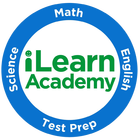|
Parent-teacher conferences are right around the corner, and it's important to make the most of this valuable opportunity to connect with your child's teacher face to face.
The goal of parent-teacher conferences is to find ways to work together to support your child's success. By taking a few minutes to prepare in advance, you can help facilitate a productive meeting. Ready to form a beneficial partnership with your child's teacher? Here are a few ways to get there: Talk to Your Child Before your conference, check in with your child. See if he has any questions or concerns he'd like you to address with his teacher, and get a sense of his attitude toward the class and teacher. Is your child falling behind, feeling unchallenged, or struggling socially? Knowing this at the onset will help you make the most of your time with his teacher. Come with Questions Coming prepared with questions ensures that you leave with all the information you need, and the teacher will appreciate your engagement. Rank your questions from most pressing to least, in case you run out of time to discuss them all. You will likely have questions about your child's performance in class, academic strengths and weaknesses, and skill levels. However, don't forget about the social element of education. It's essential to talk with your child's teacher about how your child responds to feedback, how she behaves in class and how she gets along with other children. If your child is displaying any behavioral or social issues in class, it will be important to address them at home so she can thrive in the classroom. Here are some helpful questions to ask during a parent-teacher conference:
Maintain an Open Mind A good teacher will talk with you honestly about both your child's strengths and her weaknesses. These weaknesses may not be negative, but merely areas for improvement. Take advantage of the opportunity to help your child improve. If your child's teacher has noticed academic or behavioral problems, don't become defensive. While it can be difficult to hear negative feedback, your cooperation is essential to your child's success. Advocate for your child when needed, but be prepared to take on a supporting role, as well. If you feel disappointed or frustrated, know that there's no pressure to respond to the teacher's feedback right away. Thank her for the information, and let her know that you're processing it and will follow up. Create an Action Plan The most important question you can ask your child's teacher is, "How can I support your efforts at home?" Work with the teacher to create a short list of goals for your child. Then, decide how you will both contribute to those aims. For example, if your child is failing to complete and turn in homework, you might instate a "no TV until homework is finished" rule. If she's struggling to make friends at school, you may sign her up for a soccer team or community theater. Once you have your action plan, check in with your child's teacher throughout the year to measure progress. As long as you're respectful of the teacher's time and expertise, he will appreciate your involvement and support. This type of plan ensures that the goals you discuss in the parent-teacher conference turn into real, measurable progress for your student. If your child is struggling with academics, your action plan might include outside tutoring. For information on iLearn Academy's certified tutors and personalized learning plans, browse our curriculum.
1 Comment
|
Categories |
We make a personal commitment to ensure each student is well-prepared for the academic school year.
Dedicated to helping your student succeed.
©
iLearn Academy 2019


 RSS Feed
RSS Feed
